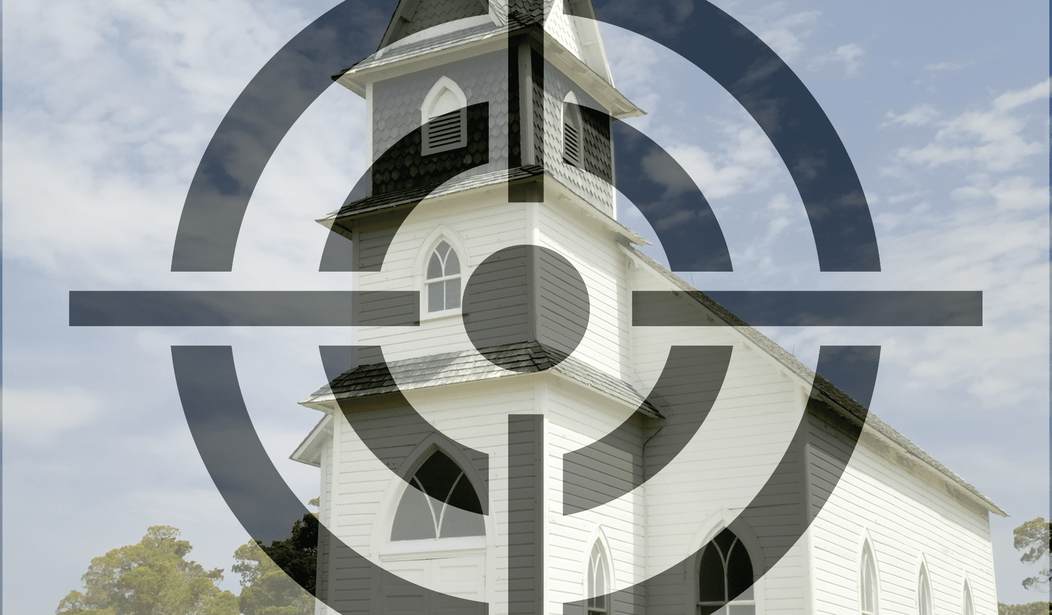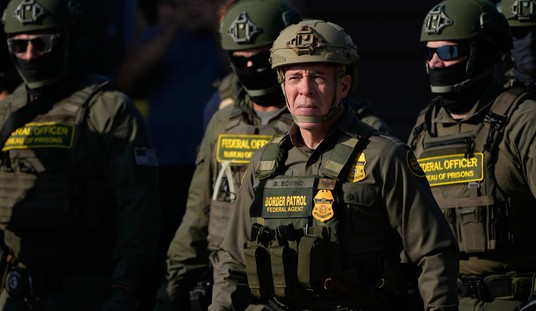Last Friday, a Wisconsin judge ruled that a city non-discrimination ordinance must provide exemptions for churches and other faith-based groups to protect their religious freedom. The court acted quickly so as to enable churches to celebrate Christmas without the threat of this law.
“The court did state that because these are primarily Christian churches and they provide activities and programs for the community, that’s why he wanted this to take effect immediately so they wouldn’t have this ordinance hanging over their heads” during the holiday, Kevin Snider, an attorney with the Pacific Justice Institute (PJI) who represented five churches and a Christian radio station in the case, told PJ Media on Wednesday.
The city of De Pere passed an ordinance in November 2017 banning discrimination on the grounds of sexual orientation and gender identity (SOGI). Without an exemption for religious organizations and churches, this law would effectively force churches to abandon their traditional sexual morality.
“De Pere had its own worldview on sexual ethics and they’re entitled to that view,” Snider admitted. “But to use the force of the state to require churches of all places to hold that view or be punished is something else entirely.”
The churches and radio station filed a lawsuit in February (shortly before the ordinance would come into effect in March) claiming that without clear exemptions for religious organizations, the ordinance “is likely to be imposed on churches and other religious organizations in a manner that would mandate government orthodoxy in core religious functions, communication, and conduct.”
The Green Bay court ruled in their favor. “Court finds that churches and their campuses are not public accommodations and the City of De Pere’s ordinance infringes on the freedom of religion,” court records explained, Fox 11 News reported. “Court grants plaintiff’s motion for summary judgment and denies defendant’s motion to dismiss.”
This case is extremely significant for the nation-wide battle between religious freedom proponents and LGBT rights activists.
The LGBT movement has pushed SOGI non-discrimination laws in order to protect people on the basis of their sexual orientation and gender identity. The De Pere ordinance outlawed discrimination in terms of employment, public accommodations, and housing.
Outlawing unjust discrimination is a noble goal, but there is no evidence that LGBT people are unable to obtain goods and services. Furthermore, these laws often make it harder for individuals and organizations to live in accordance with their sincerely held religious beliefs.
Jack Phillips, a baker in Colorado, gladly serves LGBT people who walk into his shop. Yet he refused to bake a cake to celebrate a same-sex wedding, on the grounds that he could not in good conscience endorse the event as a wedding because he believes that marriage is between one man and one woman.
The Colorado Civil Rights Commission ruled that he had discriminated against the same-sex couple, however, using Colorado’s SOGI non-discrimination law to penalize Phillips’s religious beliefs. Indeed, one of the commissioners compared his religious beliefs and his decision to opt out of baking the cake to Nazis, even though Phillips’s own father served in World War II and liberated concentration camps.
The Supreme Court ruled that the commission had violated Phillips’s religious freedom by engaging in unjust animus against his religious beliefs. Even so, the commission went after Phillips again, this time for allegedly discriminating against a transgender lawyer by refusing to bake a cake that celebrated gender transition. Worse, the legacy media mostly took the commission’s side, branding Phillips as the aggressor and conveniently leaving out the baker’s suspicions that the same transgender lawyer was behind requests for cakes with Satanic and explicitly sexual themes.
Colorado went after Jack Phillips because his shop was considered a place of “public accommodation,” which means that non-discrimination laws apply to how he runs his business. Even though Phillips did not discriminate against people on the basis of sexual orientation or gender identity, the commission twisted the law to penalize his religious beliefs.
The De Pere SOGI ordinance went beyond most other such laws, as it had no exemptions for religious organizations and considered churches “public accommodations.”
This means the ordinance effectively decreed what shall be orthodox in religion — effectively outlawing the traditional Christian (and Jewish, and Muslim, and Mormon, and many other faith) beliefs that marriage is between one man and one woman and that gender is determined by biological sex.
If a pastor preached traditional sexual morality, he could be penalized on the basis that he discriminated against LGBT people who might be listening. If a church refused to hire an openly homosexual or transgender person on the grounds that the church accepts the Bible, it would find itself at the mercy of the government. If a church refused to host a same-sex wedding, the city could fine them or force them to shut down.
Snider, the lawyer who represented the churches, recounted to PJ Media an eye-opening moment in the process of written discovery.
“We asked specifically, ‘Are these churches places of public accommodation under this law?’ And the city said, ‘Yes, they are.’ Had the city said the other way, then we would have walked away from this case,” Snider said. Worse, the city later doubled down, arguing that “churches shouldn’t be exempted form public accommodations laws.”
The lawyer noted that there have been seven cases across the country, and each time this idea has been presented, courts have struck it down.
While this religious freedom victory was important, Snider stressed that it would not apply to cases like that of Jack Phillips. “The problem was going beyond — far beyond — that, going after religious institutions themselves,” the lawyer said. “I think that is the ultimate goal of those who support the LGBTQ community and their allies.”
Indeed, LGBT megadonor Tim Gill has declared his intention to “punish the wicked,” by which he means anyone who would opt out of serving or celebrating a same-sex wedding. An LGBT group in Ohio has announced its intention to penalize churches if they refuse to host same-sex weddings.
“The other side is not interested in compromise — they are interested only in winning,” Snider argued. “I’ve dealt with them for decades. They’re not afraid to use local legislation or state legislation or the courts to force their worldview on other groups, including religious institutions.”
Snider again emphasized the timeliness of the court’s ruling. “They didn’t want to have this ordinance as a potential threat to the churches” during the Christmas season. “One church already had stopped renting out its facilities for weddings to the community because of this.”
Despite this Christmas victory, the battle over SOGI laws is likely to continue, and some Christian organizations have decided to advocate for SOGI laws in order to get religious freedom protections included. This strategy is likely to fail, however, given aggressive moves like the one in De Pere.
The court struck down this attack on religious freedom, but the battle is far from over.
Follow the author of this article on Twitter at @Tyler2ONeil.









Join the conversation as a VIP Member